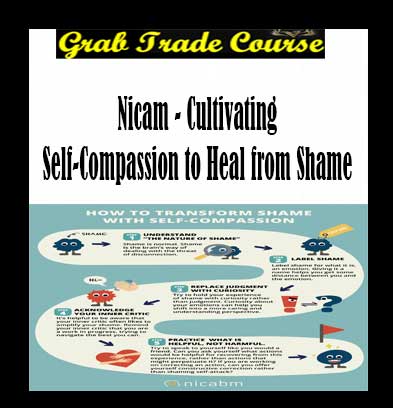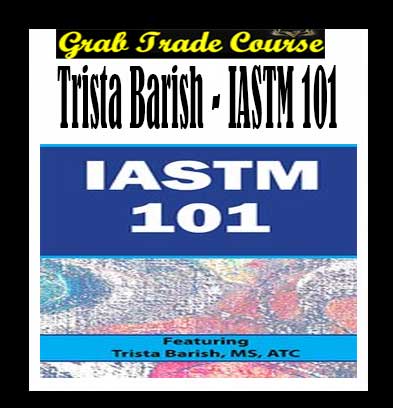Nicam – Cultivating Self-Compassion to Heal from Shame
Description
Nicam – Cultivating Self-Compassion to Heal from Shame Free download. Above all, When a client is drowning in shame, there’s one powerful lifeline we can use to help pull them out of it – it’s compassion-oriented therapy.
To do it effectively, we need to know:
- Particular compassion-based strategies that can transform the “threat-focused shame mind”
- the distinctive drivers that feed the shame cycle
- why compassion-oriented therapy is uniquely effective for healing shame – even after traditional treatments have fallen short
That’s why we asked 12 of the world’s top experts to share their best strategies for integrating compassion-based interventions into their work with shame, to bring you . . .
Cultivating Self-Compassion to Heal from Shame with Nicam
Channeling the Power of Self-Compassion to Break a Cycle of Shame
- One Critical Starting Point for Helping Clients Stuck in Shame and Self-Criticism
- A Specific Metaphor to Help Crystallize Your Client’s Understanding of How Self-Compassion Can Heal Shame
- A Key Revelation About Compassion and the “Threat-Focused Shame Mind”
- Distinguishing External Shame from Internal Shame (and How Each One Might Impact Treatment)
Compassion-Based Strategies to Shift How Your Client Experiences Shame
- The Simple But Powerful Process That Can Move Your Client Out of Reactivity
- Two Ways to Help Your Client Neutralize and Depersonalize Shame
- How to Tell Whether You’re Striking the “Right Tempo” When Working with Shame
- An In-Depth Look at What Feeds the Shame Cycle (and How to Help Clients Dismantle It)
- One Simple Imagery Exercise to Help Clients “Retire” Their Inner Critic
The Common Challenges of Integrating Self-Compassion Work into the Treatment of Shame (and Ways to Address Them)
- A Practical Application to Help Clients Move from Judging Shame to Understanding It
- Key Questions to Help Clients Understand the Function of an Inner Critic
- An Expert Workaround for When a Client Struggles to Develop a Compassionate Self
- Case Study: Using Functional Analysis and Imagery to Move a Client Out of Self-Criticism and into Self-Correction
Practical Applications to Orient Your Client Away from Shame and Toward Self-Acceptance
- A Step-by-Step Guide to Helping Clients Create a Corrective Emotional Experience
- One Expert Technique to Help You Notice When Cognitive Interventions May Be Falling Short
- Using the “Two Schools” Metaphor to Introduce Your Client to Self-Compassion Work
- Tone Training – What It Is, How to Do It, and Why It’s So Effective in Helping Clients Accept Self-Compassion
Critical Insights for Using Self-Compassion to Work with Shame
- Using the Three Paradoxes of Shame to Help Crystallize Your Client’s Understanding of It
- Redefining a Common Misconception of the Inner Critic
- Two Key Aspects of Suffering (and How Shame Is Deeply Embedded In Each)
- An Analogy to Help Your Client Understand the Relationship Between Shame and Self-Compassion
Expert Strategies for Transforming Shame with Self-Compassion
- How to Help Your Client Feel More Comfortable Talking About Shame
- Three Techniques to Help Clients Let Go of an Inner Critic
- A 3-Part “Investigative” Method to Help Clients Work with Their Inner Critic
3 Bonuses
Key Self-Compassion Practices That Can Help Your Client Be a Better Parent
- How to Work with Clients Who Feel “Never Good Enough” As a Parent
- Simple Ways to Motivate Clients to Parent with More Kindness and Compassion Instead of Criticism
- One Exercise to Use with Clients Who Struggle with the Uncertainty of Parenting
- One Key Metaphor to Help Parents Distinguish Between Unconditional Love and Accepting Problematic Behavior
- Common Misconceptions About Compassionate Parenting (and the Ways Culture Can Condemn Compassion)
- One Meditation Practice to Help Parents Approach Anger with Compassion
Fresh Insights into Why We Self-Attack
- Evolutionary Explanations for Why We Self-Criticize
- Cultural Factors and Early Childhood Experiences that Can Lead to Self-Criticism
- Why Self-Attack Is a Type of Safety Function
When the Inner Critic is the Voice of an Abuser
- How to Integrate Chair Work in Compassion-Focused Therapy
- The Power of Role-Play in Silencing an Inner Critic
- Compassionate Letter Writing as a Tool to Combat the Inner Critic
Thank You For Choosing Us! We appreciate it.









Reviews
There are no reviews yet.